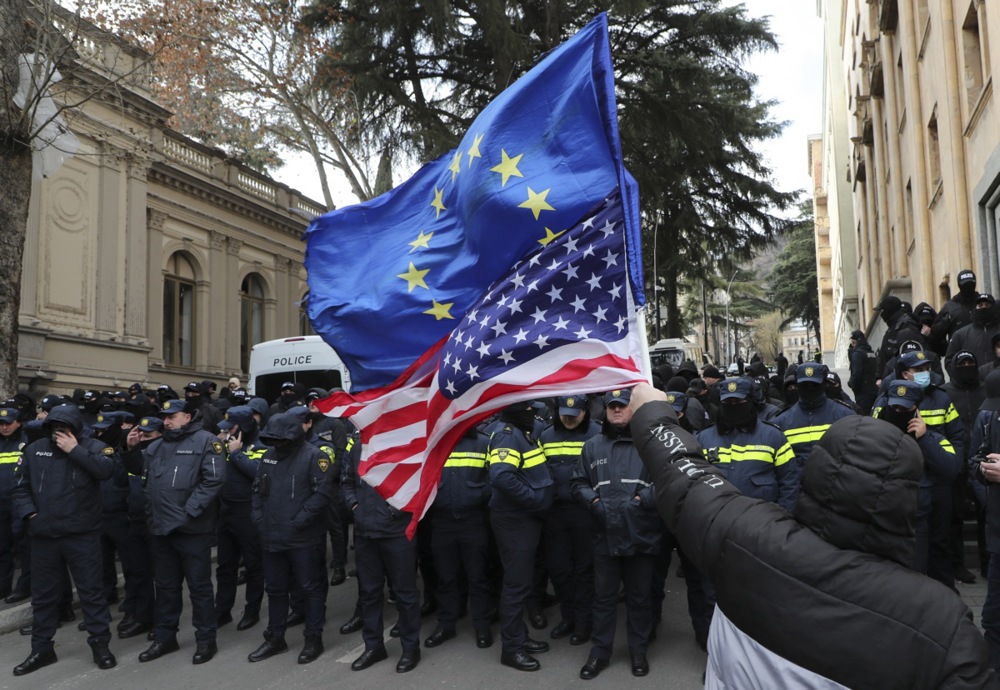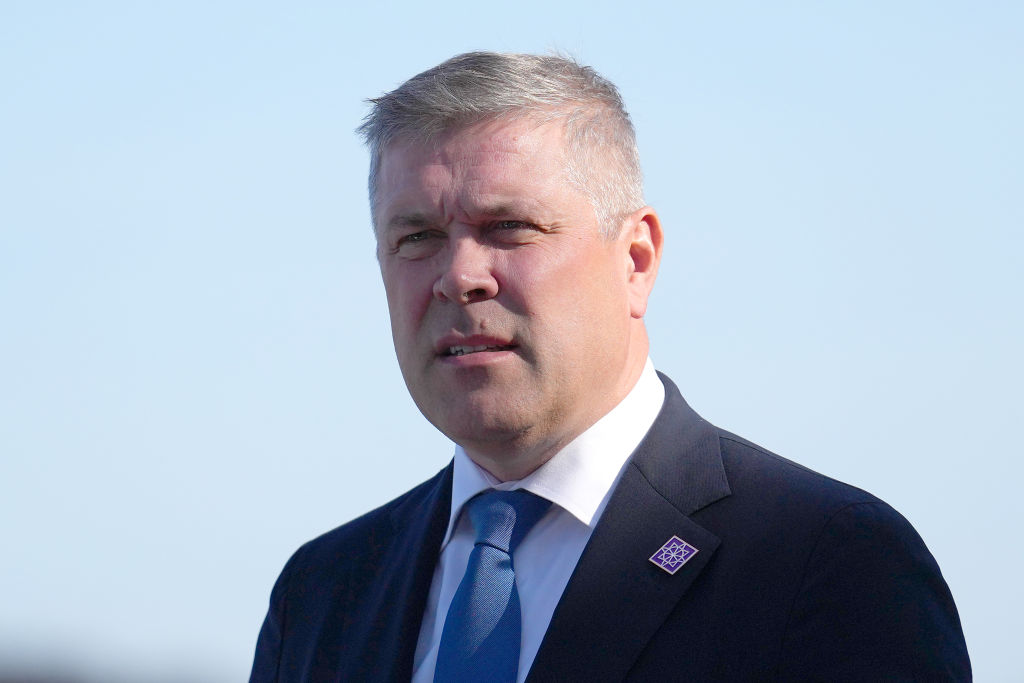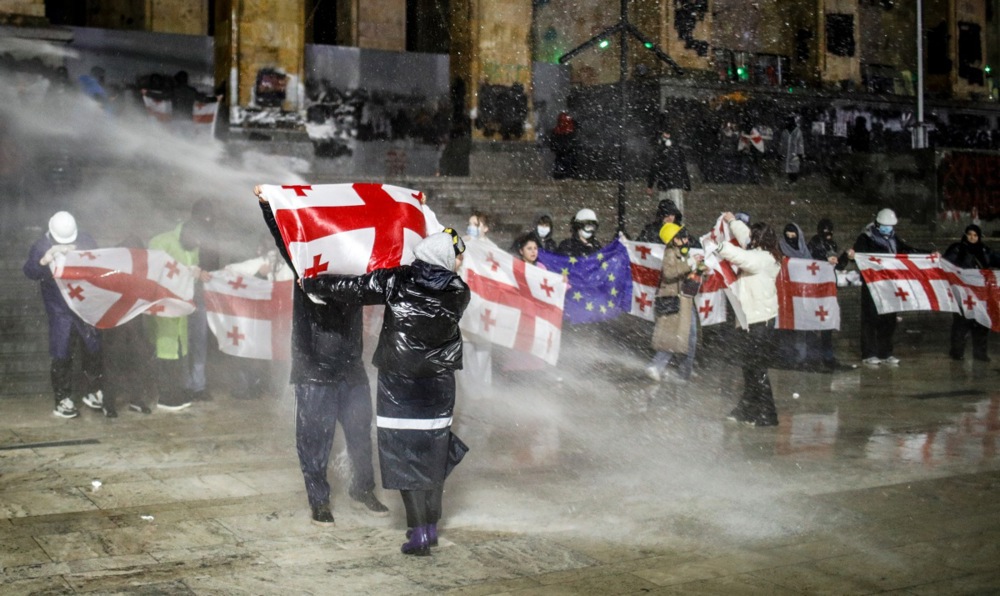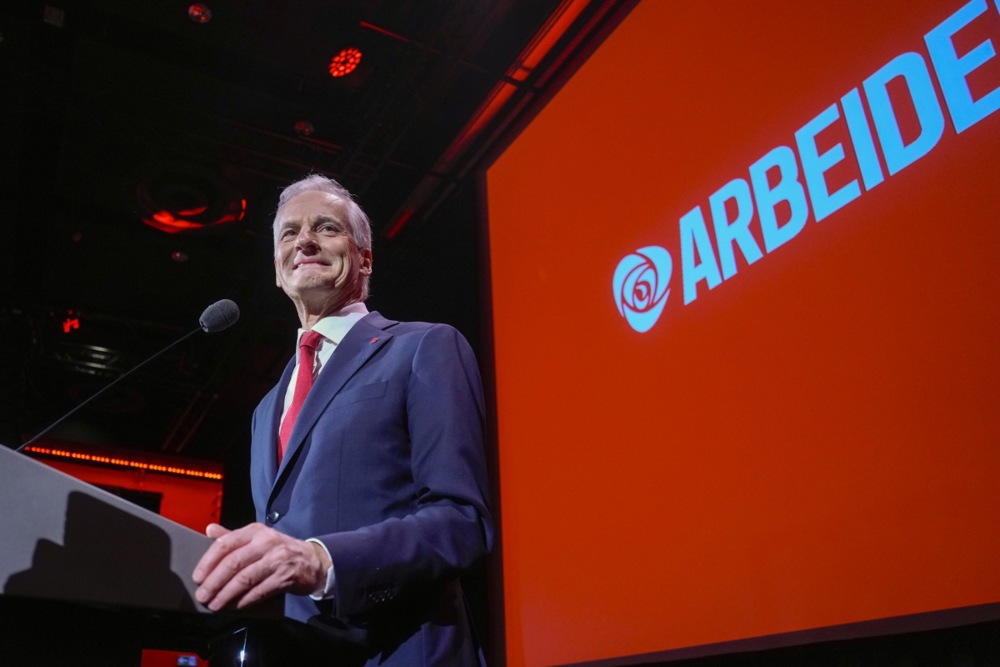Georgia’s municipal elections have deepened the country’s political crisis, with the ruling Georgian Dream party claiming a sweeping victory while opposition forces decried the process as fraudulent and repressive.
The vote on October 4, held against a backdrop of ongoing protests stemming from the disputed 2024 parliamentary elections, saw Georgian Dream secure majorities in every municipality. That included a commanding win for incumbent Tbilisi Mayor Kakha Kaladze with more than 70 per cent of the vote.
Turnout hovered around 41 per cent, influenced by a boycott from most opposition parties who argued the elections were rigged to favour the incumbents.
This outcome has intensified divisions, with Georgian Dream portraying it as a mandate for stability and national sovereignty, while critics, including the European Union, view it as further evidence of democratic backsliding.
The elections followed a parliamentary vote last year, where Georgian Dream secured 54 per cent amid allegations of widespread irregularities, including voter intimidation, misuse of State resources and ballot-stuffing.
International observers from the Organisation for Security and Co-operation in Europe (OSCE) and others noted an uneven playing field, with the ruling party’s dominance exacerbated by laws targeting civil society and media.
Protests erupted immediately after the 2024 results, leading to a constitutional crisis and calls for snap elections.
The 2025 local polls, intended to test public sentiment, instead coincided with violent clashes on election day, as demonstrators attempted to storm the presidential palace in Tbilisi, prompting police to deploy tear gas and water cannon.
More than 20 injuries were reported, mostly among officers, and authorities uncovered weapons allegedly intended for sabotage.
Georgian Dream leaders, including Parliament Chairman Shalva Papuashvili, hailed the results as a resounding endorsement of the government’s policies, framing the vote as a rejection of foreign interference and “Maidanisation” — a reference to Ukraine’s 2014 revolution, which they equated with chaos and external meddling.
Yesterday’s elections in Georgia have put an end, once again, to all speculations about who the Georgian people are, where the Georgian people stand, how many Georgians there are, and who can speak on their behalf.
Georgian people went to the polls yesterday, which was… pic.twitter.com/ImQmPnFRBy— Shalva Papuashvili 🇬🇪 (@shpapuashvili) October 5, 2025
Papuashvili credited law enforcement for thwarting what he called a “failed coup” orchestrated by internal radicals and external forces, including EU diplomats, who he alleged supported violence without condemnation.
The party points to strong rural support and Kaladze’s landslide in Tbilisi as proof of genuine popularity, dismissing boycott calls as undemocratic and accusing opponents of trading sovereignty for obedience to Brussels or Washington.
Russian officials echoed this narrative, praising Georgian Dream’s “triumph” and decrying western “interference” as akin to the Ukraine situation.
Tomasz Froelich, MEP with Alternative for Germany (AfD), noted on X that last year, Georgia achieved an impressive economic growth of 9.5 per cent and for this year, 6.5 per cent is forecast.
“Actually, these are not good prerequisites for subversive agitations,” he said.
Froelich underscored that the EU had much worse statistics: “For comparison: The EU manages 0.9 per cent (2024) or 1.5 per cent (2025 forecast) economic growth.”
He concluded: “Nevertheless, Brussels is participating in regime-change attempts in Tbilisi. To the EU elites, it’s a thorn in the eye that the Georgians want Christian values instead of ‘wokeness’, sovereignty instead of foreign interference, and peace instead of war.
“I already demanded in February: No arrogant lectures, no escalating interventions! Georgia must not become a second Ukraine!”
For Georgian Dream, the low turnout reflects opposition weakness rather than repression and the results affirm its resistance to EU integration demands seen as infringing on Georgian autonomy.
Opposition parties and pro-EU advocates contend that the elections were neither free nor fair, occurring in a climate of systemic repression that stifled dissent and competition.
Many boycotted the vote, citing arrests of activists, media crackdowns and electoral code changes favouring Georgian Dream. That echoed issues from 2024, where observers made accusations of voter bribery, intimidation and discrepancies between exit polls and official tallies.
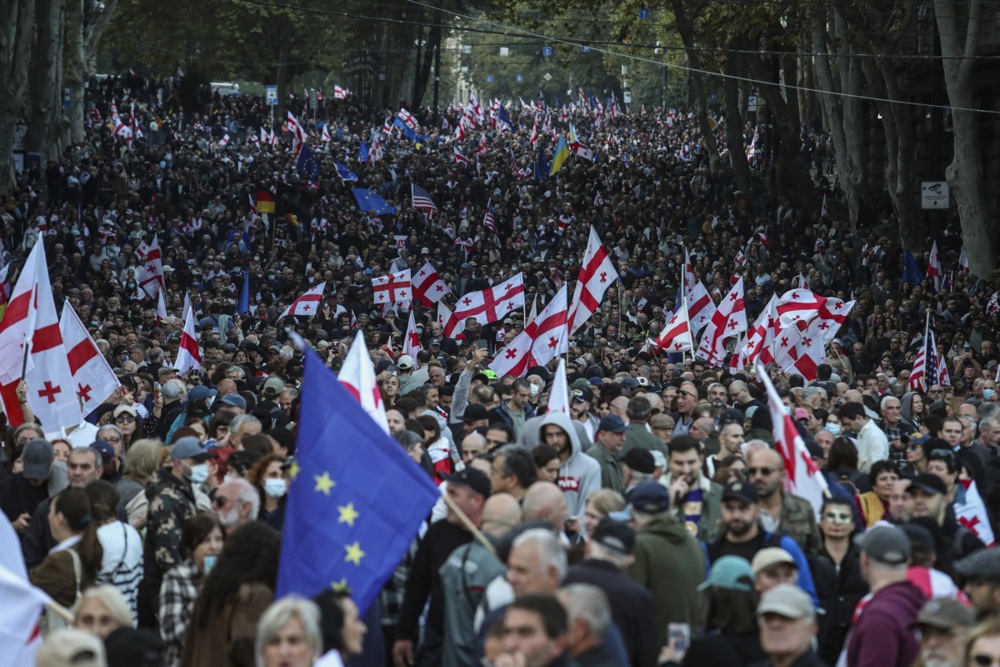
While local elections tended to be seen as less important, many took to the streets, and some protests turned violent.
Thousands went to Tbilisi’s Freedom Square to voice their discontent.
Paata Burchuladze, an opera singer who is now an activist, called for “power to return to the people”, calling the administration “illegitimate” and declaring a transition was needed.
The protesters demand the release of political prisoners and the holding of snap parliamentary elections.
After demonstrators marched towards the presidential palace and attempted to penetrate the grounds, police used water cannon and tear gas. Protesters built barricades and set them on fire.
The government said it would prosecute all people involved in “this violent act”.
It has foiled an “attempted coup planned by foreign intelligence services”, Prime Minister Irakli Kobakhidze said.
He called on the EU’s ambassador to denounce the disturbances, claiming the envoy carries some of the blame and accused EU officials of supporting an “attempt to overthrow the constitutional order”.
Kaja Kallas, the High Representative of the EU, together with the European Commissioner for Enlargement Marta Kos, issued a joint statement, where they referred to “a period of extensive crackdown on dissent” in Georgia.
“Months of raids on independent media, the passing of laws targeting civil society, the jailing of opponents and activists or amendments to the electoral code favouring the ruling party, drastically reduced the possibility of having competitive elections.
“A large part of the opposition boycotted these elections, and the turnout was relatively low,” they said.
They added: “The European Union firmly rejects and condemns the disinformation regarding the EU’s role in Georgia and denounces the personal attacks against the ambassador of the European Union to Georgia.”

